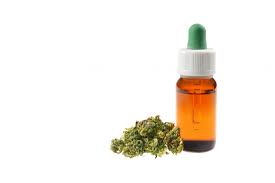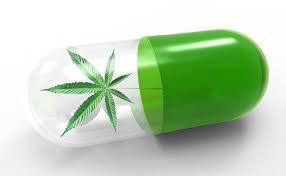What the heck is CBD Oil and why does it matter? Let’s take the mystery out of CBD!
Cannabidiol (CBD) oil has become the hot new product in states that have legalized recreational and medical marijuana.
The non-intoxicating marijuana extract is being credited with helping treat a host of medical problems — everything from seizures to anxiety to inflammation to sleeplessness.
But experts say the evidence is scant for most of these touted benefits.
Cannabidiol, or CBD, is extracted from the flowers and buds of marijuana or hemp plants. It does not produce intoxication; marijuana’s “high” is caused by the chemical tetrahydrocannabinol (THC).
What is Cannabis Oil?
 Cannabis oil is a concentrated extract obtained by extraction of the dried flowers or leaves of the cannabis plant. It is not actually an oil, but derives its name from its sticky and oily appearance. The purpose of producing cannabis oil is to make cannabinoids and other beneficial components, such as terpenes, available in a highly concentrated form.
Cannabis oil is a concentrated extract obtained by extraction of the dried flowers or leaves of the cannabis plant. It is not actually an oil, but derives its name from its sticky and oily appearance. The purpose of producing cannabis oil is to make cannabinoids and other beneficial components, such as terpenes, available in a highly concentrated form.
Similar to other herbal extracts, the chemicals in cannabis oils vary depending on how the extract is made and what chemicals were in the plant to begin with.
Cannabis plants produce thousands of compounds but the most well recognized belong to a class called cannabinoids. There are several cannabinoids but the two that are most well-known among consumers are THC (tetrahydrocannabinol) and CBD (cannabidiol).
THC is the primary psychoactive compound in marijuana and it is what people are searching for when they want a product that gives them a “high.” Unlike THC, CBD isn’t known to cause psychoactive effects, and is therefore attractive to those who want to avoid the high but who believe there are other benefits of CBD.
CBD products that don’t contain THC fall outside the scope of the U.S. Drug Enforcement Agency’s (DEA) Controlled Substances Act, which means CBD products are legal to sell and consume as long as they don’t have THC. That’s likely one of the reasons why CBD products, including CBD oil, are becoming more socially acceptable and increasingly popular. In 2016, Forbes reported that CBD products are expected to be a $2.2 billion industry by 2020.
In recent years, a large, unregulated market for CBD (cannabidiol) oils has emerged. These products are typically concentrated extracts from fiber-type cannabis strains (hemp), which contain large concentrations of CBD, but negligible of THC.
In most countries it is forbidden to create oil from cannabis, because cannabis is a controlled substance (i.e. illegal drug). However, CBD, unlike THC, is not a controlled drug, and regulations are minimal by comparison in many places around the world. This has led to the appearance of numerous CBD-rich extracts on the international market. Most of these extracts contain low levels of CBD and high levels of CBD-acid, the natural constituent of the fresh cannabis plant before it is heated.
How is cannabis consumed?
| Consumption Method | Product Format | Affect and/or Application |
| Smoke – a cannabis pipe or a joint | Flowers, Concentrates, Wax, Dabs, Hash | A quick way to get stoned and then sober up |
| Vape – cannabis oil vape pen or a dab rig | Oils, Dabs, Wax | A quick way to get stoned and then sober up |
| Eat – put it in whatever you want! | Oils, flowers and concentrates prepared for food production | A slow way to get stoned and stay stoned for a long time |
| Topical – good for the body, good for the soul | Oils, Creams, Salves, Butters, Lotions |
|
CBD and THC
 Phytocannabinoids occur naturally in cannabis plants. There are fifteen subclasses of such compounds. THC, cannabidiol, and cannabidivarin are some examples of the same.
Phytocannabinoids occur naturally in cannabis plants. There are fifteen subclasses of such compounds. THC, cannabidiol, and cannabidivarin are some examples of the same.
The pop-culture favorite of cannabinoids may in fact be Tetrahydrocannabinol, or THC as it is colloquially known, due to its psychoactive nature.
Endocannabinoids are organically produced by the human body, generated by the endocannabinoid system. Endocannabinoids have been found to help in the regulation of sleep, pain and the responses of the immune system. Cannabis scientists also have been investigating the role of physiological cannabinoids in tissue recovery and disease.
Cannabidiol (CBD) is a subclass of Phytocannabinoids and one among one twenty cannabis compounds. It is hailed for its ability to be meditative, without causing a euphoric high. This non-addictive cannabinoid has been the talk of the town and the core of numerous experiments. The anti-inflammatory properties of CBD have inspired the marketing of its by-products, such as CBD oil, for pain relief and relaxation.
How does cannabidiol help relieve pain?
 In general, the human body has specific sites that are allotted to cannabinoids, called the cannabinoid receptor sites. Receptors are mechanisms to which the cannabinoids naturally present in the human body as well as the ones artificially ingested/ applied attach themselves. There are two kinds of receptors for cannabinoids, the CB1, and the CB2. While the CB1 receptors are present in the brain, the CB2 receptors can be found in the immune system.
In general, the human body has specific sites that are allotted to cannabinoids, called the cannabinoid receptor sites. Receptors are mechanisms to which the cannabinoids naturally present in the human body as well as the ones artificially ingested/ applied attach themselves. There are two kinds of receptors for cannabinoids, the CB1, and the CB2. While the CB1 receptors are present in the brain, the CB2 receptors can be found in the immune system.
Cannabinoids can be agonists, inverse agonists or inhibitors. The agonists simply stimulate a bodily function once they adhere to their respective receptors. Inverse agonists associate themselves with the same receptors as agonists, while causing a chemical reaction opposite to the ones caused by agonists. Inhibitors simply stop a chemical reaction or response once bound to their receptors.
Cannabidiol is unique, as it does not work with the CB1 or CB2 receptors. It passively influences the working of the Endocannabinoid system, regulating the reception of pain, immune system functions and the process of falling and staying asleep. CBD also amplifies the effect of all cannabinoids that attach to the CB1 receptors.
The Benefits of CBD Oil Epilepsy
Cannabidiol has been widely accepted as an anti-psychotic family member of the cannabis family. Ongoing studies have involved inspecting the use of CBD in helping victims of Post-Traumatic Stress Disorder.
CBD oil has definitely proven to subdue symptoms of anxiety, to the extent that the US Food and Drug Administration has approved the use of Epidilolex, a patented CBD medicine, for the treatment of epilepsy and the repetitive seizures induced by the affliction.
Similarly, CBD oil can be effective in the treatment of stress-related bodily ailments.
Multiple Sclerosis
Multiple Sclerosis is a condition in which the immune system mistakenly reacts abhorrently to healthy cells and organs. Also known as an autoimmune disease, multiple sclerosis causes reoccurring spasms and enduring pain, for those affected. Although the effect is modest, CBD oil, acting as an anticonvulsant, can help in mitigating the number of spasms caused, as well as the resulting pain.
Arthritics
One of the most profound uses of cannabidiol oil is for the relief of arthritic pain. There are two kinds of arthritis, rheumatoid and osteoarthritis, both resulting in swelling and stiffness in joints. Scientific studies have documented that the application of CBD oil can help assuage the pain caused by inflammations. Results have been encouraging.
Autism
Of the many developmental disorders, autism and its associated spectrum of disorders are perhaps the most pervasive. Autistic children suffer from insomnia, irritability and a loss of appetite, to name a few. Practitioners have been experimenting with the use of CBD oil in curtailing the social anxiety and psychological manifestations vicariously caused in victims of autism.
Cramps, Chronic Pain and Addiction
There have been a number of studies investigating the conceivable part of CBD oil in vanquishing pain of all proportions, be it menstrual cramps or pain of a chronic magnitude. CBD oil maybe a good tolerance-builder, an agent that enhances the body’s ability to cope with and be resilient to pain.
It is clear that CBD oil has a number of functions in pain relief and regulation. However, there are a few arguments that are worth considering. One is the use of CBD oil on children. Although proven to be a player in autism-symptom mitigation, the influence of CBD oil on the developing brain has yet to be deemed unintrusive.
CBD oil might also cause fatigue, diarrhea and sudden weight gain/weight loss, depending on each individual’s ability to metabolize or reaction to the substance.
To conclude, the increasing use of CBD oil as a therapeutic substance has inspired many applications. However, caution must be exercised when choosing CBD as a wholesome alternative to allopathic medicine for pain.
Read more about in our article A Beginners Guide to Tinctures